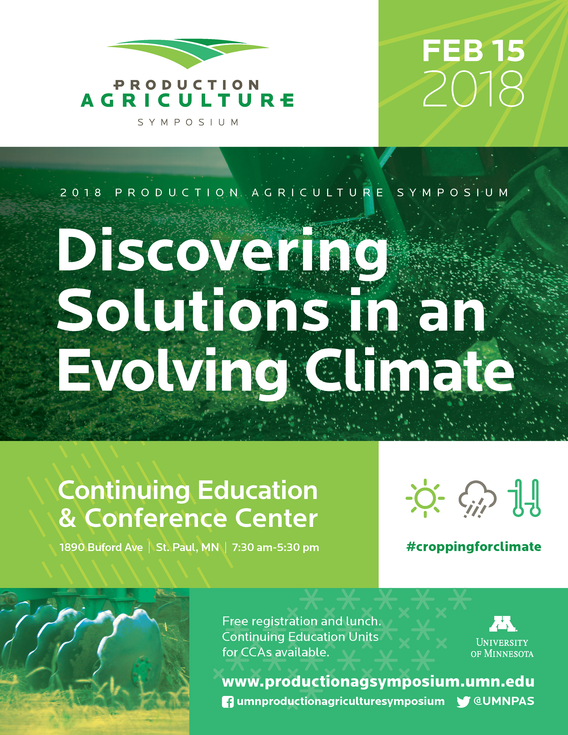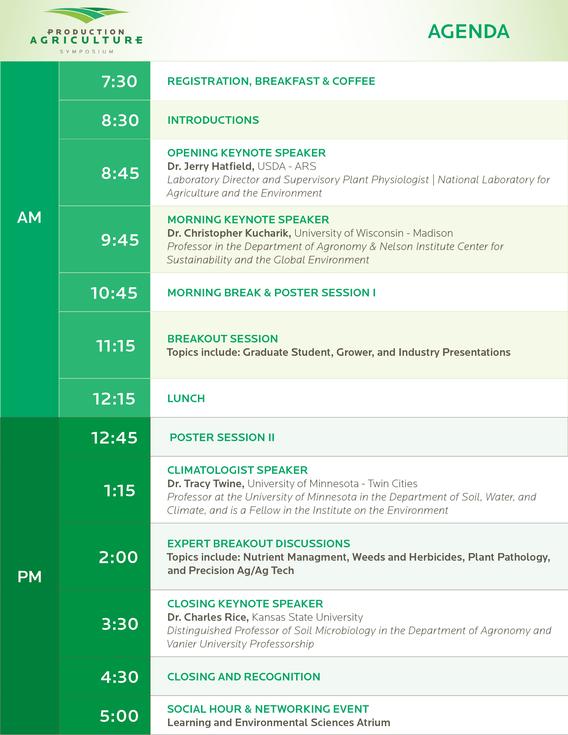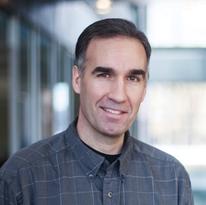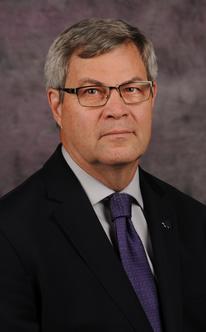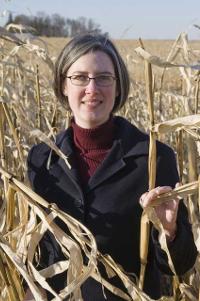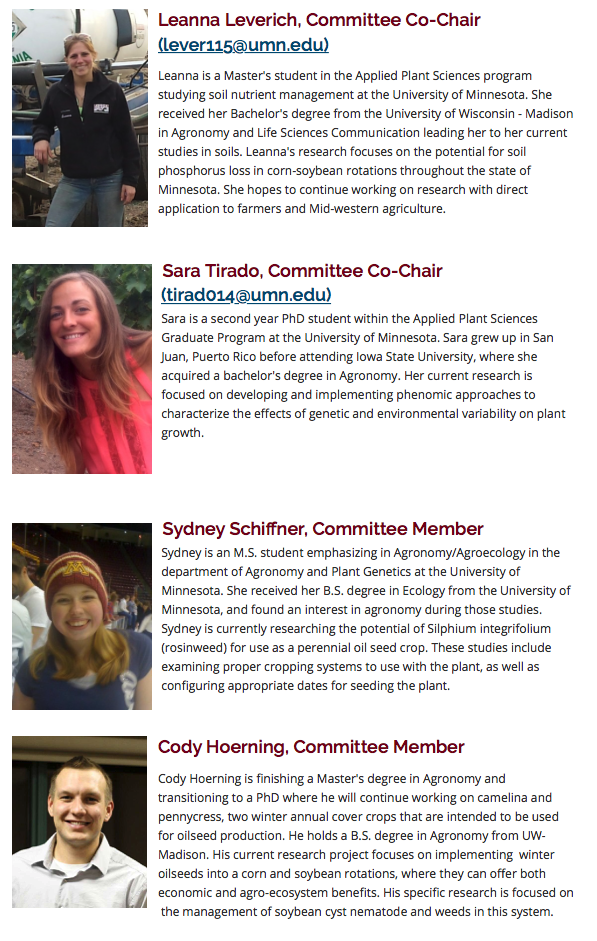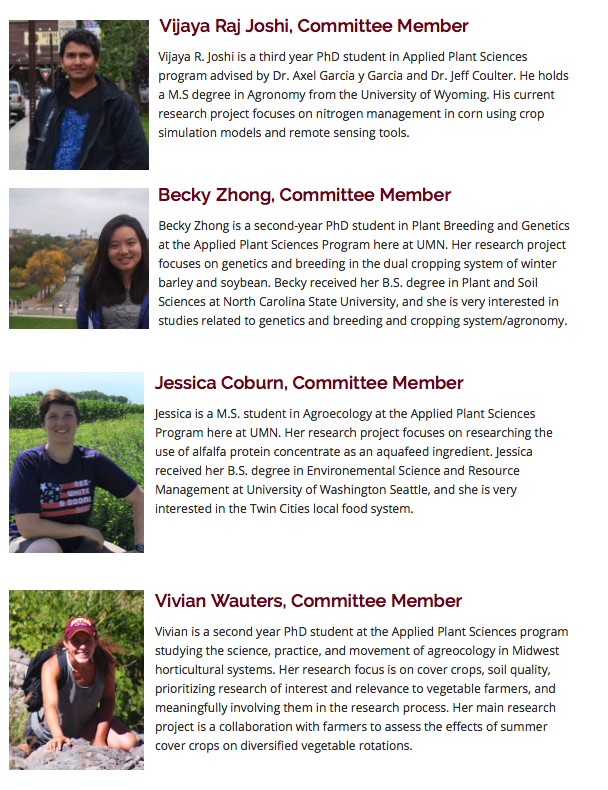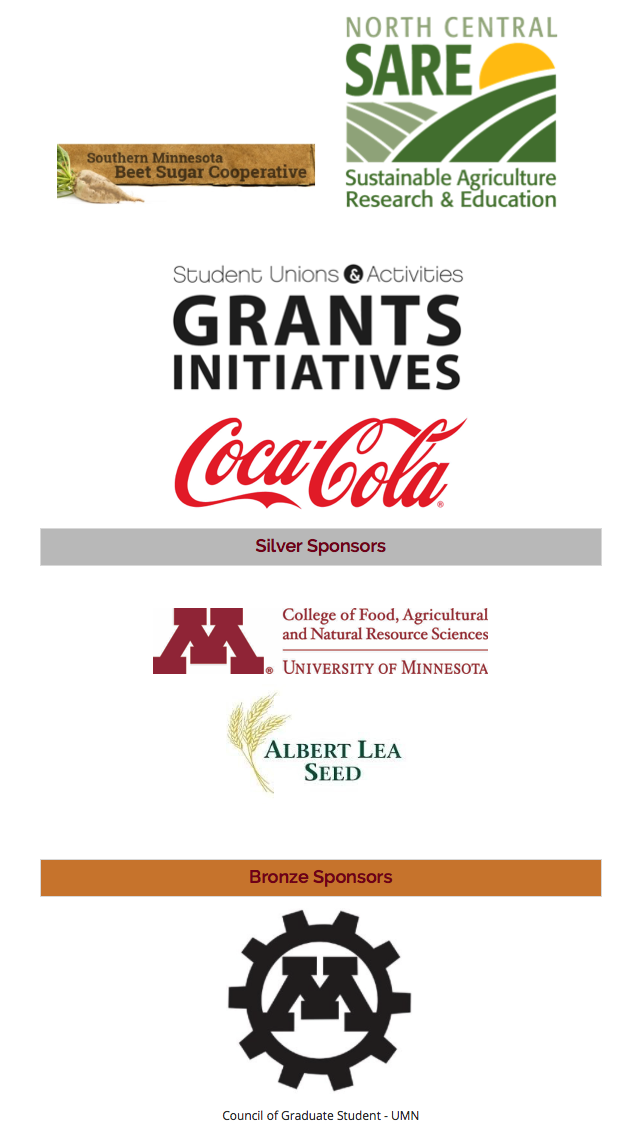Thank you to all who attended or streamed our February 15, 2018 event!
About
The Production Agricultural Symposium is annual event hosted by students in the Applied Plant Science Graduate Program at the University of Minnesota - Twin Cities. The symposium is a full day event featuring advice from experts in the field, breakout sessions lead by science and industry leaders, and a poster competition for graduate students in production agriculture. The theme for the 2018 symposium was Discovering Solutions In an Evolving Climate.
This Symposium is one of a series of symposia flag-shipped by DuPont Pioneer in collaboration with many Universities internationally. At our symposium here in Minnesota, we strive for an audience of those in agricultural production: farmers throughout the state and midwest, university students in agricultural fields, as well as industry and research leaders in Minnesota and throughout the country. The Production Agriculture Symposium is a free event designed to promote interaction among student scientists, producers, academia, and industry.
Schedule
Keynote Speakers
Opening Keynote: Jerry L. Hatfield, Ph.D.
"Can we Achieve Climate Resilience in Midwestern Cropping Systems?"
Dr. Jerry L. Hatfield is the Laboratory Director of the USDA-ARS National Laboratory for Agriculture in Ames, Iowa, and co-PI on the Agriculture Model Improvement and Intercomparison Project. He graduated from Kansas State University in 1971 with a B.S., University of Kentucky in 1972 with a M.S., and in 1975 with a Ph.D. from Iowa State University in Agricultural Climatology. His personal research focuses on quantifying the interactions among the components of the soil-plant-atmosphere system to quantify resilience of cropping systems to climate change and development of techniques to enhance decision-making for agriculture. He leads the agriculture sector for the National Climate Assessment, a member of the IPCC process that received the 2007 Nobel Peace Prize, and lead on the agriculture indicators of climate change for the USGCRP. He is a Fellow of the American Society of Agronomy, Crop Science Society of America, and Soil Science Society of America and Past-President of the American Society of Agronomy and member of the American Meteorological Society, American Geophysical Union and Soil and Water Conservation Society. He is the recipient of numerous awards and was elected to the ARS Hall of Fame in 2014 for his research on improving agriculture and environmental quality and the Hugh Hammond Bennett award in 2016 for his national and international work on conservation. He is the author or co-author of 443 refereed publications and the editor of 18 monographs.
Website: https://www.ars.usda.gov/midwest-area/ames/nlae/people/jerry-hatfield/
Morning Keynote: Christopher Kucharik, Ph.D.
"Connections between weather variability, crop planting dates, and productivity: Can this knowledge be used to increase crop resiliency in a changing climate?"
Dr. Christopher Kucharik is a Professor at the University of Wisconsin-Madison in the Department of Agronomy and The Nelson Institute Center for Sustainability and the Global Environment. He graduated from UW-Madison in 1992 with a B.S. in Atmospheric Sciences, and with a Ph.D. from UW-Madison in 1997, also in Atmospheric Sciences. He currently has affiliate appointments at UW-Madison with the Wisconsin Energy Institute, the Great Lakes Bioenergy Research Center (GLBRC), the Department of Atmospheric and Oceanic Sciences, Agroecology, the Center for Climatic Research, and Freshwater and Marine Science. He is a member of the Working Groups Council for the Wisconsin Initiative on Climate Change Impacts (WICCI), and serves as co-chair for the WICCI Agriculture Working Group. His personal research program focuses on policy relevant questions, using a combination of experimental field work and ecosystem modeling to examine the impacts of climate change, weather variability, and land management on ecosystem services from the field to continental scale. His most recent research has been supported by USDA, the National Science Foundation (NSF), the Department of Energy (DOE), and The National Wildlife Federation (NWF). His current research is examining the impacts of climate change and agricultural land management on water resources in the Yahara Watershed and the Central Sands regions of Wisconsin; quantifying the impacts of the Renewable Fuel Standard (RFS) on water quality in the Mississippi Basin; assessing the carbon sequestration potential of bioenergy cropping systems across the Midwest US; and measuring the dynamics of the Urban Heat Island in the Madison region. He was named a Badger Bioneer in 2013, and is author or co-author of 137 refereed publications.
Website: http://agronomy.wisc.edu/christopher-kucharik/
Closing Keynote: Charles Rice, Ph.D.
"What disruptive technologies are needed to disrupt climate impacts on production agriculture?"
Dr. Charles (Chuck) Rice is a University Distinguished Professor and holds the Vanier University Professorship at Kansas State University. He is a Professor of Soil Microbiology in the Department of Agronomy. He earned his degrees from Northern Illinois University and the University of Kentucky. Dr. Rice teaches courses and conducts research on soil carbon and nitrogen, soil health, microbial ecology, and climate change impacts on agricultural and grassland ecosystems. His research includes work in several countries, especially Brazil. He has advised over 40 graduate students and 10 post-doctorates and has over 200 publications.
Dr. Rice has also served in numerous capacities with professional societies including President of the Soil Science Society of America in 2011. Internationally, he served on the UN Intergovernmental Panel on Climate Change to author a report on Climate Change in 2007 and 2014 and was among scientists recognized when that work won the Nobel Peace Prize in 2007. He is a Fellow of the Soil Science Society of America, American Society of Agronomy, and the American Association for the Advancement of Science. In 2017, he received the “International” awards from the Soil Science Society of America and the American Society of Agronomy and was named the Hugh Hammond Bennett Awardee from the Soil and Water Conservation Society which recognizes exceptional service and national and international accomplishments in the conservation of soil, water, and natural resources.
Dr. Rice serves on the Board of Trustees for CIAT, the International Tropical Agriculture Research Center based in Cali Colombia. He also chairs the Board on Agriculture and Natural Resources of the U.S. National Academies of Science, Engineering, and Medicine.
Website: http://www.agronomy.k-state.edu/people/faculty/rice-charles/
UMN Climatologist: Tracy Twine, Ph.D.
“Minnesota's weather and climate: What can we expect for the future?”
Dr. Tracy Twine is an Associate Professor at the University of Minnesota in the Department of Soil, Water, and Climate, and is a Fellow in the Institute on the Environment. She graduated from the Pennsylvania State University in 1994 with a B.S. in meteorology, and with an M.S. (1998) and Ph.D. (2004) from the University of Wisconsin-Madison in atmospheric and oceanic sciences. She chairs the UMN Women’s Faculty Cabinet and actively participates in the Earth Science Women’s Network (ESWN). Her research is focused on the exchanges of energy and water between the atmosphere and land surface, and how these affect the health of ecosystems— whether urban, rural, or natural. Her recent work has been funded by the USDA, the Department of Energy (DOE), the National Science Foundation (NSF), and LCCMR. Currently, she is predicting how climate change and land use change will affect water resources across Minnesota, evaluating the effectiveness of afforestation and bioenergy crop production across the U.S. to sequester carbon while mitigating warming, and characterizing the urban heat islands of the top 50 cities around the world.
Website: https://www.swac.umn.edu/directory/faculty/tracy-twine
Expert Panelists
Plant Pathology
Debby Samac - USDA-ARS
Deborah Samac is a Research Plant Pathologist with USDA-ARS in St. Paul, Minnesota where she also serves as the Research Leader for the Plant Science Research Unit. She received a Ph.D. in plant pathology from the University of Wisconsin-Madison then conducted postdoctoral research with Monsanto before joining ARS in 1993. Her areas of expertise include alfalfa pathology and biotechnology. Current research in her laboratory includes identifying disease resistance genes in alfalfa, developing disease resistant germplasm, and using gene editing in alfalfa.
James Bradeen - UMN Twin Cities
Jim Bradeen is a Professor and Department Head of Plant Pathology at the University of Minnesota. He is also Co-Director of the Stakman-Borlaug Center for Sustainable Plant Health, an interdisciplinary center that solves complex plant health problems at home and around the world. Jim and his research group study how crop plants recognize and defend against pathogens. Jim is especially interested in the potential to use genes from wild plant species to develop disease- and environmental stress- resistant crop plants that need fewer chemical inputs. Jim’s research was featured in the University of Minnesota’s Driven to Discover campaign this past fall. Jim teaches or co-teaches several graduate courses in molecular plant pathology and scientific communication. An avid Twitter user, you can follow him @JimBradeen. Jim is also passionate about issues of diversity and inclusion in higher education and he has been an active advocate at the University of Minnesota and in his professional society.
Nutrient Management
Dan Kaiser - UMN Twin Cities
Daniel Kaiser in an associate professor in the department of Soil, Water, and Climate is the current state extension specialist in soil and plant nutrient management at the University of Minnesota. He received his M.S. and Ph.D. degree from Iowa State University. His current research in Minnesota focuses on developing research and extension programming related to soil testing and fertilizer management for the development of fertilizer guidelines for major field crops in Minnesota. Current research focuses on soil test correlation/calibration research for phosphorus, potassium, and sulfur, nutrient cycling in corn, soybean, and wheat cropping systems, starter fertilizer utilization and placement options for corn and soybean production, and utilization of remote sensing technology for detection of nutrient stress.
Fabian Fernandez - UMN Twin Cities
Dr. Fabián G. Fernández is an Associate Professor in the Department of Soil, Water, and Climate at the University of Minnesota, Twin Cities. Fernández was born and raised in the Pampas region of Argentina. He earned his Ph.D. degree from Purdue University in 2006, and M.S. and B.S. degrees from Brigham Young University in 2002 and 2000, respectively. Before joining the University of Minnesota in 2013, he was an assistant professor at the University of Illinois since 2006. The research and extension education programs of Dr. Fernández are focused on soil nutrient management and plant mineral nutrition. His current work at the University of Minnesota concentrates primarily on environmental issues related to nutrient management for corn cropping systems. He seeks to identify and implement nitrogen management practices that are sustainable both in terms of minimizing environmental impacts, specifically water quality, and improving crop yields. Fernández graduated 6 graduate students and currently is advising 3 students. He is an associate editor for Soil Science Society of America Journal, has published more than 30 peer-reviewed journal articles, co-authored 3 book chapters, over 30 proceedings papers, more than 60 abstracts for scientific conferences, over 120 extension publications and research reports, and hundreds of local, national and international presentations.
Weeds and Herbicides
Mark Jeschke - DuPont Pioneer
Mark Jeschke currently serves as Agronomy Information Manager at DuPont Pioneer. Mark earned his B.S. and M.S. degrees in Crop Sciences at the University of Illinois at Urbana-Champaign and Ph.D. in Agronomy at the University of Wisconsin-Madison. Mark joined the Agronomy Science group at Pioneer in 2007. His primary role is development and delivery of useful and timely agronomy information based on DuPont Pioneer and university agronomy research. Mark authors and edits many of the agronomy resources available in the DuPont Pioneer agronomy library and through the Pioneer® GrowingPoint® agronomy app. Mark is originally from northern Illinois and is actively involved in the family corn and soybean farm near Rock City, Illinois.
Jared Goplen - UMN Morris
Jared Goplen is an Extension Educator in Crops with the University of Minnesota Extension based at the Morris Regional Extension Office. Goplen focuses primarily in the areas of forage and small grain production. He earned his master’s and doctorate degrees in Agronomy and Agroecology from the University of Minnesota, with a focus in weed science. He grew up and continues to be involved in his family’s crop and livestock farm in southwestern Minnesota.
Precision Ag and Ag Technologies
Ian McRae - UMN Crookston
Dr. Ian MacRae is a Professor with the Dept. of Entomology at the University of Minnesota. He has extensive experience in insect management of field and row crops, small grains, oil seed crops, sugarbeet, and tree fruits. His primary research interests are related to the spatial and temporal distribution of insect pest species which include remote sensing. Dr. MacRae’s lab has an active research program on remote sensing, utilizing small Unmanned Aerial Systems to detect insect damage and plant pathogens.
Eric Galdi - DuPont Pioneer
Eric Galdi is a native of Wisconsin and obtained his B.S. degree in Soils and Crop Science from University of Wisconsin – Platteville and is currently pursuing an M.S. degree in Agronomy from Iowa State University. He provided nutrient/manure management and precision agriculture services to growers in Wisconsin before joining DuPont Pioneer in 2009. His role at DuPont Pioneer started in agronomic testing of newer corn herbicide transgenic traits within the research department. He then transferred to supporting the field staff during the launch and development of Encirca® Services Nitrogen, Fertility, Seeding, and Images offerings. His current role is with the Agronomy Science department focused on supporting trials and data collected to characterize product performance across North America. In addition, he aids in implementing projects utilizing newer precision agriculture technologies (UAVs, mobile apps, etc.) field staff use to provide growers information to make management decisions.
Committee Members
Sponsors
The 2018 Production Agriculture Symposium is graciously funded by:
